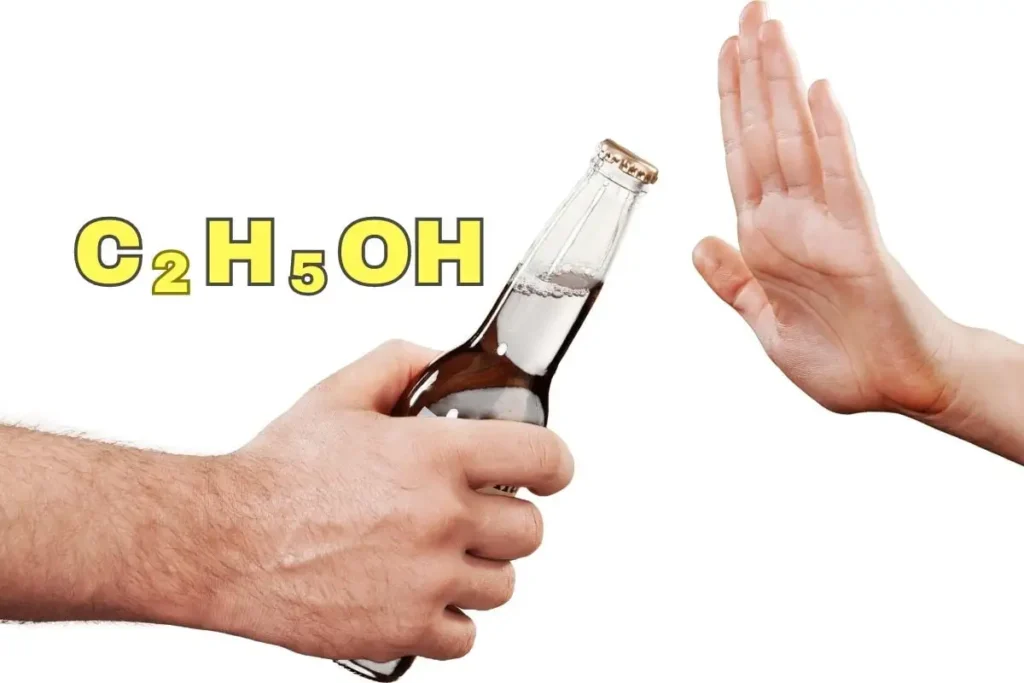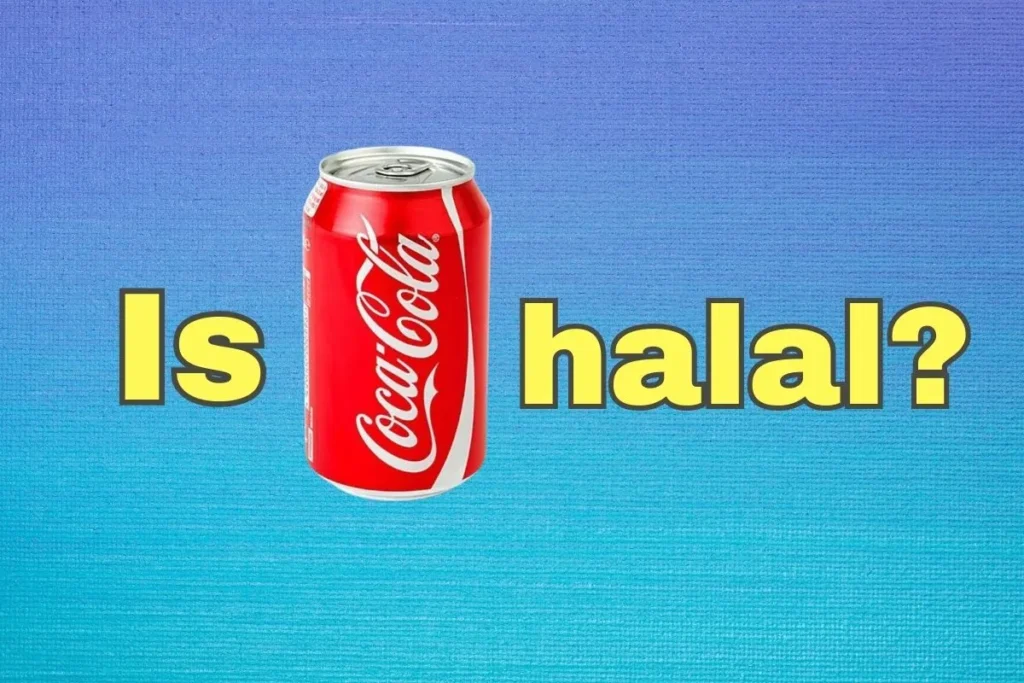For many Muslims, the consumption of alcohol raises ethical questions rooted in religious doctrine and interpretation. Whether you consider yourself observant or nonobservant, the question “Is alcohol halal?” under Islamic law remains relevant for anyone interested in understanding the nuances of Islamic scripture and tradition. And yet amidst all the debate over the morality of drinking itself
Key Takeaways
| 📌 Alcohol in Islam: The permissibility of alcohol (ethanol) in Islam is a complex topic. While the Quran and hadith do not explicitly prohibit alcohol, they do prohibit intoxicants (khamr) that cause drunkenness. |
| 📌 Fatwa on Alcohol: A fatwa issued by the Indonesian Ulema Council (MUI) states that ethanol derived from intoxicants (khamr) is considered haram (forbidden) and impure (najis). However, ethanol from non-intoxicating sources, such as synthetic production or non-intoxicating fermentation, is permissible with certain conditions. |
| 📌 Permissible Limits: Beverages with alcohol/ethanol content below 0.5% are considered halal if they are medically harmless and do not originate from intoxicating substances. This fatwa seeks to balance religious guidelines with practical considerations in various industries, including food and beverages. |
About Alcohol
Alcohol refers to a category of substances that includes both natural and synthetic products that contain ethanol, methanol, or other similar hydroxyl groups. These substances are used primarily as psychoactive drugs because of their ability to produce feelings of relaxation, euphoria, and reduced anxiety. They are classified according to their origin, including beer, wine, spirits, liqueurs, bitters, fermented drinks, and so on.
The chemical structure of alcohol consists of carbon, oxygen, and hydrogen atoms held together via covalent bonds. Ethanol (C2H5OH), commonly referred to simply as “alcohol,” is one type of organic molecule with this formula. Other forms include methanol (CH3OH), which has one less hydrogen atom but poses greater risks when ingested.
In small amounts, alcohol consumption is generally regarded as safe and may even provide health benefits due to the antioxidants present in red wine and other types.
On the downside, excessive intake of alcohol leads to significant detrimental effects; firstly, heavy alcohol consumers tend to experience negative physical consequences like high blood pressure, liver damage, heart disease, digestive issues, obesity, and neurological problems.
Secondly, chronic abuse results in psychological disorders, impaired judgment and behavior, increased risk of accidents or injuries, social isolation, relationship strains, financial troubles, legal trouble, and poor work performance.
As such, alcohol usage must be monitored and regulated by governments due to the harmful effects experienced individually and collectively as societal illnesses increase.
Determining Alcohol (Ethanol) Status
To begin our discussion, let us initially focus on the law pertaining to food and drink (let’s just say food for the sake of it). While we will later delve deeper into specific details about alcohol regulations,
Food is categorized as either halal or haram, based on religious principles outlined in the Quran, along with guidance provided by the prophet Muhammad ﷺ (peace be upon him). Essentially, all food is deemed halal (acceptable), unless specifically restricted or condemned by Allah through divine revelations or through the prophet himself.
This means that whatever is decreed forbidden by the messenger of Allah holds equal weight as a directive from Allah himself. We can clarify that on Allah’s directive in the chapter Al Baqarah verse 168 :
يَـٰٓأَيُّهَا ٱلنَّاسُ كُلُوا۟ مِمَّا فِى ٱلْأَرْضِ حَلَـٰلًۭا طَيِّبًۭا وَلَا تَتَّبِعُوا۟ خُطُوَٰتِ ٱلشَّيْطَـٰنِ ۚ إِنَّهُۥ لَكُمْ عَدُوٌّۭ مُّبِينٌ
“O humanity! Eat from what is lawful and good on the earth and do not follow Satan’s footsteps. He is truly your sworn enemy.”
Now, let’s talk about the restrictions. Several grounds exist for why specific sustenances must not be consumed. First and foremost, if it causes harm to the body. Allah stated in the Quran :
وَأَنفِقُواْ فِي سَبِيلِ ٱللَّهِ وَلَا تُلۡقُواْ بِأَيۡدِيكُمۡ إِلَى ٱلتَّهۡلُكَةِ وَأَحۡسِنُوٓاْۚ إِنَّ ٱللَّهَ يُحِبُّ ٱلۡمُحۡسِنِينَ
“And spend of your substance in the cause of Allah, and make not your own hands contribute to (your) destruction; but do good; for Allah loves those who do good.
The passage explains that when God intends mercy and kindness upon people, He guides them toward beneficial and uplifting acts instead of those detrimental to health, mind, and soul, thus urging His worshippers to follow suit. Consequently, anything injurious to human flourishing remains unlawful due to this revealed truth.
Secondly, food is considered haram because of its substances. As per scriptural dictates contained in surah Al Maidah verse 3, Muslims are barred from consuming blood, decaying flesh, and swine flesh together with other meats that haven’t been ritually sacrificed according to Sharia procedures.
حُرِّمَتْ عَلَيْكُمُ ٱلْمَيْتَةُ وَٱلدَّمُ وَلَحْمُ ٱلْخِنزِيرِ وَمَآ أُهِلَّ لِغَيْرِ ٱللَّهِ بِهِۦ وَٱلْمُنْخَنِقَةُ وَٱلْمَوْقُوذَةُ وَٱلْمُتَرَدِّيَةُ وَٱلنَّطِيحَةُ وَمَآ أَكَلَ ٱلسَّبُعُ إِلَّا مَا ذَكَّيْتُمْ وَمَا ذُبِحَ عَلَى ٱلنُّصُبِ
“Forbidden to you are carrion, blood, and swine; what is slaughtered in the name of any other than Allah; what is killed by strangling, beating, a fall, or by being gored to death; what is partly eaten by a predator unless you slaughter it; and what is sacrificed on altars.“
Interestingly, for alcohol itself, there is not even a single verse in the Quran that forbids it. Even in the hadith, you won’t find any text containing alcohol. However, there is a clear prohibition on the consumption of khamr in the Quran. The term “khamr” refers to any substance that has intoxicating properties.
يَـٰٓأَيُّهَا ٱلَّذِينَ ءَامَنُوٓا۟ إِنَّمَا ٱلْخَمْرُ وَٱلْمَيْسِرُ وَٱلْأَنصَابُ وَٱلْأَزْلَـٰمُ رِجْسٌۭ مِّنْ عَمَلِ ٱلشَّيْطَـٰنِ فَٱجْتَنِبُوهُ لَعَلَّكُمْ تُفْلِحُونَ
“O believers! Intoxicants, gambling, idols, and drawing lots for decisions are all evil of Satan’s handiwork. So shun them so you may be successful.“
This is where the discussion gets even more interesting. As we know, the main ingredient of liquor and other intoxicating drinks is alcohol. Does that make alcohol haram? What about other foods, which naturally contain alcohol like jackfruit or grapes?
There is some debate among scholars regarding whether or not alcohol can be considered “khamr.” Some believe that all forms of alcohol should be classified as such, while others argue that only certain types of alcohol fall under this category.
1. Alcohol is Khamr
Those who claim that alcohol itself is khamr base their argument on the fact that originally halal foods and drinks become unlawful (halal) if they contain even the slightest trace of alcohol. They assert that the impurity comes from the addition of alcohol, so the source of impermissibility lies solely with the presence of alcohol. Therefore, according to this viewpoint, alcohol is actually the cause of any prohibition associated with khamr.
This means that all laws applicable to khamr automatically apply to alcohol, especially since most scholars consider khamr mixed with other substances to be impure. Thus, alcohol becomes impure (najis), possibly more than anything else. This indicates that alcohol is not simply mixed with khamr but is actually its originator or main contributor.
2. Alcohol is not Khamr
Additionally, there exist arguments supporting the perspective that alcohol should not be regarded as part of khamr that may pose difficulties to disprove :
2.1. Alcohol Found Naturally In Food
Research has shown that ethanol (a part of alcoholic beverages) can be found in every fruit and vegetable. With the fermentation and decay of fruits and vegetables, this specific element’s dominance also increases. Fruits like jackfruit and grapes have an alcoholic percentage that’s lower than five percent, and the estimated amount of alcohol in fresh grapes is roughly 0.52mg/kg
All of these halal and nutritious foods are above haram status but where does this leave alcohol which falls into the category of Khamr? None of the scholars have ever issued a fatwa forbidding all these food items simply on account of them containing alcohol.
2.2. Alcohol Is Not Consumed
It can be argued that alcohol does not fall under the category of khamr since humans have never directly consumed it. However, alcohol in essence is not commonly consumed as a drink, and making pure alcohol with the intention of getting drunk does not happen often.
Consumption of pure and high percentage alcohol like the ones available in pharmacies won’t cause intoxication but immediate death.
From this fact, we can infer that alcohol is not referred to as khamr because according to its definition, khamr denotes food or drink that doesn’t kill immediately upon ingestion and simply causes inebriation.
2.3. Many Intoxicants Are Non-Alcoholic
A lot of substances included in the category of khamr for their intoxicating properties do not contain any amount of alcohol. However, this observation reinforces the claim that alcoholic drinks are distinct from other types of khamr.
When cannabis smokers burn and inhale cannabis leaves’ smoke into their lungs, their drunken state is caused by the smoke in a literal sense. Although initially thought to contain alcohol upon further inspection both cannabis smoke and leaves are shown to be lacking in this substance
Alcohol is typically absent from pills or illicit substances that drunks often use to feel euphoric, just like opium, methamphetamine, ecstasy, and other substances they usually do not contain alcohol. Whoever drinks it will without a doubt be drunk
Not all types of alcohol may fall under the category of khamar, but it is possible for khamar to be without any traces of alcohol.
2.4. The Initial Rule of All Items Are Allowed
Examining the Quran more closely reveals that there are no prohibitions against consuming alcohol within its verses. Moreover, more than 6000 verses of the Quran do not contain any reference to alcohol.
We have not encountered any hadiths that forbid alcohol despite their potentially massive quantity; however, forbidden by the two religious sources is khamr.
According to the meaning of the language at that period in time, khamar was described as a beverage resulting from the fermentation of either grape juice or dates.
How is it possible to prohibit opium and other drugs when they are not specified by name in either the book of Allah or the sunnah of His Messenger? Can one consume these things in accordance with halal requirements?
The answer is no, of course. These objects are similar to khamar in their characteristics and cause which intoxicate individuals who consume them. This is the reason why they’re called Khamar because of their ability to intoxicate individuals and as a result, they’ve been prohibited.
Various foods and drinks may potentially contain khamr due to the presence of ingredients reportedly containing alcohol.
That being said it does not signify that every ingredient with alcohol in food is classified as khamr. Keep in mind that khamr is not synonymous with alcohol as alcohol is not always khamr either.
The Importance of Fatwa
Eventually, this issue gave rise to pros and drawbacks among certain Muslims; fortunately, a fatwa can offer comfort to any Muslim around the globe. The Indonesian Ulema Council (MUI) has released one of its fatwas concerning alcohol.
The issuance of an evidence-backed Fatwa by Indonesia’s Ulema Council (MUI) adheres to principles used in medicine, ensuring that the Fatwa is supported by both empirical evidence as well as rational reasoning making it credible and reliable.
The Fatwa states that only ethanol derived from khamr (intoxicating substances) is prohibited and considered haram (forbidden) and najis (impure).
Ethanol from other sources, such as synthetic production or non-khamr fermentation, is permissible, with specific limitations outlined in the Fatwa. For instance, the Fatwa allows for the use of ethanol in food products without imposing a specific restriction on its content, as long as it is not medically harmful.
In the case of beverages, the Fatwa permits an ethanol content of less than 0.5%, provided it is not medically harmful. Intermediate products like flavors and seasonings do not have a specific limit, but their usage in the final product must comply with the conditions set for food and beverages.
The Fatwa’s determination of the permissible ethanol content in beverages is not arbitrary but based on extensive research conducted by experts. Numerous studies have examined the ethanol content in fruits and their processed products, finding that naturally occurring ethanol does not lead to intoxication. For example, research conducted on fermented grapes, apples, and dates revealed that even after five days of fermentation, the ethanol concentration remained below 1% (v/v).
Additional studies on fruits like dates, grapes, and raisins also recommended a permissible ethanol limit of 0.78% based on observations made on the third day of fermentation. However, for cautionary purposes, the Fatwa Commission of MUI set the limit at 0.5%, taking a more conservative approach.
The evidence-based approach taken by the MUI in issuing Fatwas ensures that the decisions are grounded in both Islamic jurisprudence (sharia) and scientific knowledge. This approach enhances the credibility and acceptance of the Fatwas by academics, experts, and the industry. The MUI’s adoption of this fatwa has created an advantage, transforming its halal certification and the HAS23000 standard into global benchmark standards for other halal certification bodies.
By combining Islamic principles with scientific evidence, the MUI aims to provide comprehensive guidance that meets the halal requirements while addressing contemporary issues and advancements in various fields, including the food and beverage industry.
Is Alcohol (Ethanol) Halal?
Alcohol (ethanol) derived from khamr (intoxicating substances) is considered haram (forbidden) and najis (impure). However, ethanol from non-khamr sources, such as synthetic production or non-khamr fermentation, is permissible with specific limitations and conditions outlined in the Fatwa.
To make it easier for you to understand, here is a summary of the fatwa :
- Beverages containing khamr are haram (prohibited).
- Fermented beverage products containing alcohol/ethanol at a minimum of 0.5%, are haram.
- Fermented beverage products containing alcohol/ethanol less than 0.5% are considered halal only if it’s medically harmless.
- Non-fermented beverage products containing alcohol/ethanol less than 0.5% which does not come from khamr are legal/halal, if medically harmless, such as soft drinks with added flavorings containing alcohol/ethanol.
Final Words
We hope this article can provide clarification on the permissibility of alcohol consumption according to Islamic law, offering insight for informed decision-making.
Overall, the discussion highlights the complexity of determining the halal status of alcohol (ethanol) and the significance of evidence-based decision-making by religious authorities. By integrating Islamic principles with scientific knowledge, the Fatwa seeks to strike a balance between adhering to religious guidelines and accommodating the practical needs of industries.
FAQ
Is ethanol halal in food?
Fermented food products containing alcohol/ethanol are legally halal, as long as the process does not use haram materials and if it’s medically harmless.
Is ethanol halal in perfume?
Alcohol used in perfume is usually produced from either khamr fermentation or fermentation of natural materials like flowers and fruit. In fragrances, ethanol acts as a solvent and carrier for essential oils, prolonging their scent. Perfumes using alcohol bases are considered halal and not impure if they avoid utilizing alcohol from khamr (beer, wine, spirits, etc).
Is 0.5 abv halal?
No, as stated in Fatwa earlier. Fermented beverage products containing alcohol/ethanol at a minimum of 0.5% are haram.
Is 0.05 abv halal?
Yes, it’s halal. According to the fatwa, You can drink beverages with less than 0.5 abv as long as it is medically harmless and not sourcing alcohol from khamr.
Can Muslims drink wine?
While generally forbidden, it’s recommended that if Muslims want to consume wine, they choose varieties containing an alcohol content below 0.5% ABV, ensuring it doesn’t originate from khamr fermentation.
Can Muslims drink beer?
No, they can’t. If Muslim consumers looking to indulge in alcoholic products, including beer, must exercise caution by selecting varieties containing an alcohol volume below 0.5% ABV and ensuring that the product is not derived from khamr ingredients. Khamr refers to common sources of intoxicants, which include (but are not limited to) beer, rum, wine, and spirits.
- Is Pop Tarts Halal? What You Need to Know - February 18, 2024
- Are Graham Crackers Halal in Islam? - January 19, 2024
- Is Keebler Wheatables Halal? - January 18, 2024





